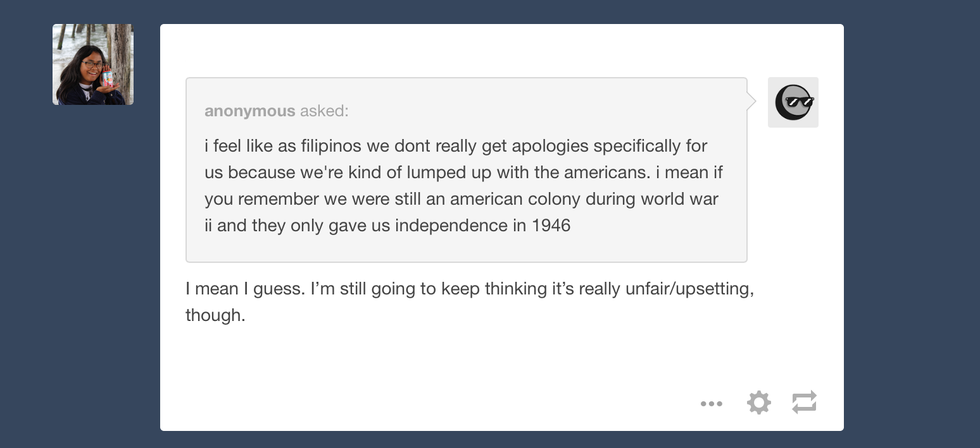Recently, Prime Minister Shinzo Abe of Japan delivered a statement expressing “profound grief” for all the people slaughtered and violated at the hands of the Japanese during World War II. But, though people were rooting for a genuine and powerful apology comparable to that of Willy Brandt's, Abe fell short.
To be fair, he had hinted in advance that his apology would be watered down. In response to the anticipation, he said:
“We must not let...further generations to come, who have nothing to do with that war, be predestined to apologize….Still, even so, we Japanese, across generations, must squarely face the history of the past. We have the responsibility to inherit the past, in all humbleness, and pass it on to the future.”
Abe’s clear intent was to ensure that these descendants of Japanese history won't still be under scrutiny for their ancestors' actions. After all, Japanese World War II survivors are a minority now (they're about 20 percent of Japan's population).
Also embedded in his apology were references to the “comfort women” (a euphemism) Japanese soldiers forcibly recruited from several places. All he had to say about them was that their “honor and dignity were severely injured.”
As a Filipina with living relatives who have shared their WWII experiences with me, I have to join his critics.
When I listened to Shinzo Abe's apology, I noticed not even a pinch of the history I grew up with: my first experience with WWII wasn't an explanation of Hitler, nor Pearl Harbor, but the story my lola (“grandmother” in Tagalog) told me about her pregnancy experience when the Japanese invaded her hometown...it was absolutely inhumane. And as long as she and some of her contemporaries are alive, PM Abe should ask for a redo.
The PM simplified his obligations to those affected by Imperial Japan (yes, he has obligations to people outside of Japan in this case). Whether or not he did it on purpose, I don’t need to know. But what everyone (especially PM Abe) needs to know is that relationships among nations shouldn't be measured by numbers, but by the strength of their exchanges in respect.
The whitewashing of history—and the subsequent overemphasis on the events on the western front—prevents awareness of the atrocities performed in the Pacific front of World War II. China, Japan, and Korea are still experiencing hostility towards each other. Filipino people hold sentiments that their specific apology has been neglected because they were an American territory during World War II.* There's still respect to be issued out by the Japanese. There are some reparations and clarifications to be made. There are long-term tensions that need to be relieved.
Shinzo Abe’s apology fell short. What made it even worse was that it was derivative and generic for something predestined to be monumental. If moving on was what he desired, he should have addressed the past properly and indicated some type of profound, genuine remorse. It'd put the living survivors and critics at ease.
That is how you move past wrongdoings, lest future generations inherit more apologetic responsibilities.
*Reference to this:






















